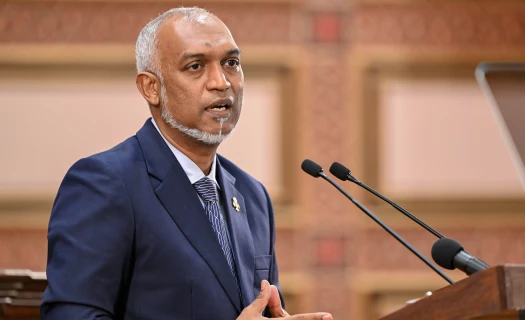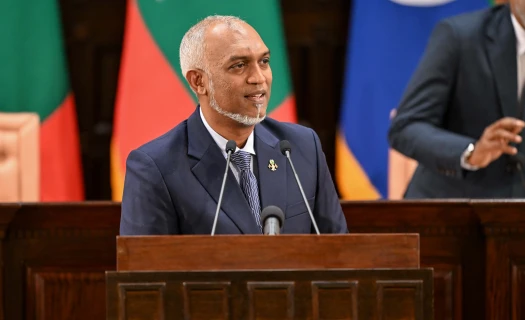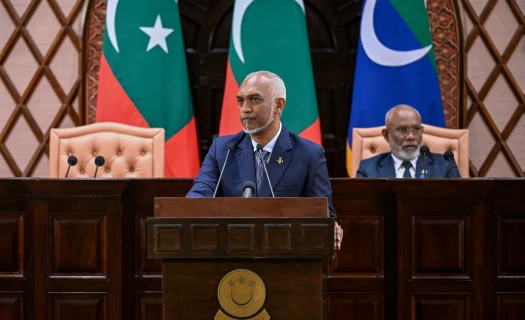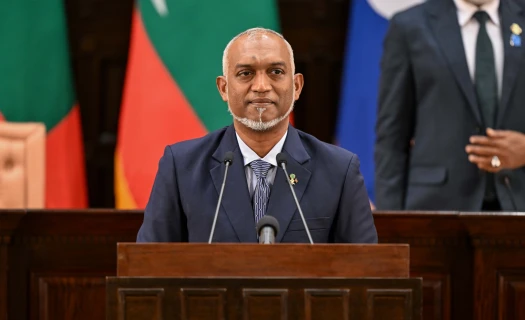Fri, 06 Feb 2026
|DHIVEHI
Autism in the Maldives: Moving from awareness to true acceptance
02 Apr 2025
|

Photo: Canadian Mental Health Association
For many, autism is just a word—something heard in passing or portrayed in media, often inaccurately. For those with autistic family members, friends, or students, however, autism is not an abstract concept but a daily reality, shaping lives in ways both beautiful and challenging.
In the Maldives, awareness of autism has grown significantly, with notable progress in education and support. Yet deep-rooted misconceptions and stigma persist. Too often, autistic individuals and their families face misunderstanding, exclusion, and ridicule. From schools to workplaces, public spaces to private homes, the struggle for acceptance continues.
Why should this matter to all of us? Autism isn't something to "fix" or "cure"—it is simply a different way of being. The more we understand this truth, the more we can create a society where autistic individuals are embraced for who they are, rather than judged for who they are not.
Why language matters
Words shape our perception of the world. They influence our thoughts, beliefs, and ultimately how we treat others. How we talk about autism is no exception.
Traditionally, many have used person-first language—saying "person with autism"—to emphasise that autism is only one aspect of someone's identity. However, many autistic individuals prefer identity-first language, choosing "autistic person" instead. Their neurology is not separate from them—it is a core part of who they are, just as being Maldivian is vital to our identity.
Neither choice is inherently wrong, though respect remains paramount. Autism is not a disease to be removed, rather a fundamental part of how a person experiences the world. When we shift our language, we shift our mindset—this small change can bridge the gap between exclusion and acceptance.
The truth about autism
Misinformation does more than create confusion—it fuels discrimination and fear. In the Maldives, outdated beliefs still prevent many autistic individuals from receiving the understanding and support they deserve.
One damaging misconception is that autistic people lack emotions. The reality? They often feel emotions more intensely than others. Though they may express feelings differently, autistic individuals experience love, joy, frustration, or pain just as profoundly as anyone else.
Another common misconception is that all autistic people are either savants or incapable of independent living. In truth, autism is not a black and white concept; it exists on a spectrum. Some individuals have exceptional abilities in specific areas, while others may need more support in daily life. Most fall somewhere in between, navigating their unique strengths and challenges.
Then there are myths blaming autism on vaccines or parenting styles. Scientific research has repeatedly shown that autism is primarily neurological and genetic. No parenting approach or childhood vaccine "causes" autism.
Perhaps most harmful is the idea that autistic children will "grow out of it." Autism is a lifelong neurodevelopmental difference. Although autistic individuals can develop coping mechanisms and learn new skills, they remain autistic throughout their lives. Our goal should never be to "fix" them, instead to support them in living fulfilling, authentic lives.
Daily challenges faced by autistic individuals
Our world is built for neurotypical people, making everyday life potentially overwhelming for autistic individuals.
Imagine walking through a crowded market where voices feel deafening, lights seem blinding, and every touch against your skin is overstimulating. That is how sensory overload feels for many autistic people. Places others navigate with ease can become battlegrounds of overwhelming sensory input.
Social interactions can be equally exhausting. Many autistic individuals struggle with unwritten social rules—conventions neurotypical people take for granted, such as when to make eye contact or how to navigate small talk.
Education and employment bring additional hurdles. Many schools lack adequate support systems, leaving autistic students feeling frustrated and misunderstood. In workplaces, autistic employees often face discrimination or pressure to mask their natural behaviours, leading to stress and burnout.
Even language contributes to exclusion when "autistic" is used as an insult, reinforcing negative stereotypes. The use of autism as a punchline both disrespects autistic individuals and deepens societal ignorance about what autism truly is.
Perhaps the most difficult challenge is the pressure to conform. Many autistic individuals feel forced to hide their true selves just to gain acceptance. True inclusion means more than awareness—it means celebrating autistic people as they are, valuing their perspectives, and ensuring they have the support needed to thrive.
Steps towards autism inclusion
The Maldives has made significant strides over the past decade. Thanks to the advocacy of parents, educators, and organisations, autism is no longer a hidden topic—it is being discussed openly, leading to meaningful changes.
One notable improvement is the expansion of special education services. Several schools now offer Individualised Education Programmes (IEPs) and have trained special education teachers supporting autistic students. The Maldives Autism Association (MAA), established in 2010, has been instrumental in providing therapy, training programmes, and public awareness campaigns.
Support for schools has also increased. As part of its corporate social responsibility (CSR) strategy, the Bank of Maldives (BML) has donated educational tools to Special Education Needs (SEN) classrooms in nine schools, benefitting over 330 students. Over the past two years, similar support has extended to 29 schools nationwide, demonstrating a growing commitment to inclusive education.
Public awareness campaigns, particularly during Autism Acceptance Month, are helping challenge stigma. Open discussions, workshops, and advocacy efforts are gradually shifting mindsets, promoting a more accepting and informed society.
What comes next?
Despite progress, challenges persist. Early diagnosis remains difficult, specialists are scarce, and employment opportunities limited. World Autism Awareness Day, marked annually on April 2, serves as a call to action for Maldivians to reflect on how our society treats its neurodivergent members. True progress means not simply recognising autism but embracing and valuing autistic individuals as they are—not as society expects them to be. The question remains: Is the Maldives ready to move from awareness to true acceptance?








